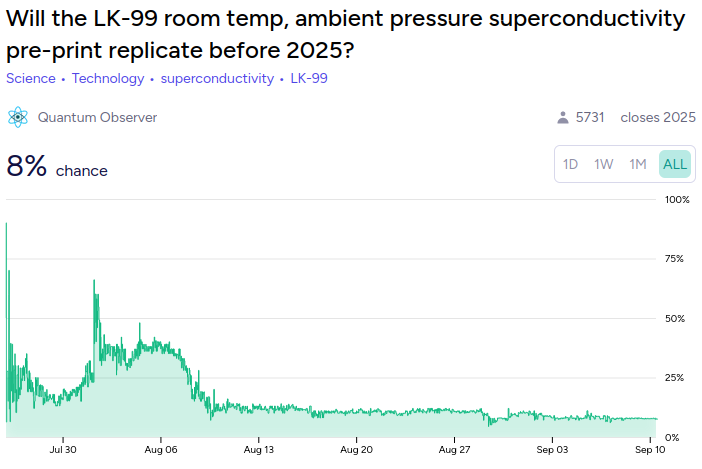How Much to Bet for Max Profits?
A fox learns the hard way before the Kelly criterion tells us the exact answer.
A fox walks into a pub. There's a hedgehog and he proposes a betting game.
"I'll bet the same amount as you, Fox. Then you draw a card. If it's red, like hearts or diamonds, you win. If it's black, like spades or clubs, I win. And just to be nice, there are even two jokers in the deck, where you win as well. Are you in?"
The fox thinks briefly. The stakes are fifty-fifty. The odds are slightly better than fifty-fifty because of the jokers. This means the expected value is positive, and as a rational fox, he should accept the bet.

The fox lays down a ten bucks on the table, just like the hedgehog. Then he draws. He loses. Hastily, the hedgehog grabs the money.
"Again?" grins the hedgehog, slyly.
The fox is surprised. If he gets to play multiple times, he's bound to win eventually.
"How many times can I play?"
"How much money do you have with you?" asks the hedgehog, pouring himself another drink.
The fox rummages through his pockets. With all the loose change, he has exactly $100.
"I'll be here all evening," giggles the hedgehog.

Nearly two hours later, the fox staggers out of the pub. He has no money left and no jacket. Inside, the hedgehog laughs, "See you again tomorrow?"
What happened? 🧐
The fox had a streak of bad luck and then sold his jacket to continue playing. Then he had a streak of good luck and was up to $250. Trusting in his luck, he bet $200 at once and lost. Then things went downhill rapidly. To tried to recover his losses, he made some desperately high bets and soon went broke.
The consideration regarding expected value was correct. Statistically, the fox should have won in the long run.
However, that's only assuming he doesn't run out of money in between. What the clever hedgehog is betting on is essentially that his opponent will get greedy and bet too much, eventually losing. Hence, the crucial question for him: how much money does the fox have?
What should the fox have done? Bet less as his budget diminished. Okay, but how much less? 🤔
For that, we need to do a bit of calculation.
There's a mathematically precise answer, which can be calculated using the Kelly criterion. We need two numbers for this: the probability of a win (p) and the win proportions (b), and calculate a little (p - (1-p)/b).
With 52 cards plus 2 jokers, the fox wins on 28 of the 52 cards. So, the win probability p is 28/52 or slightly over 53%. More precisely, it's 53.85%, but it's better to underestimate our chances to be on the safe side.
The win proportions b for a fifty-fifty bet are 100%.
Putting that into the formula: 0.53 - (1-0.53)/1 = 0.53-0.47 = 6%.
So, the fox should only bet 6% of his budget on each bet! With $100, that's exactly $6. If he wins, he'll have a budget of $106, so he should then bet $6.36. If he loses, he'll only have $94 left, so he should bet only $5.64.
If you only want to avoid going broke, you're better off not betting at all. But without a bet, of course, there's no win either. You maximize your returns by sticking exactly to the Kelly criterion. Betting too much means losing too much. Betting too little means winning too little.
Why is this important? Prediction markets are also bets, and you don't want to go broke there either. However, the numbers are a bit more complicated than fifty-fifty. Here is the popular market for the "LK-99-not-a-superconductor" in September 2023:
The market stands at 8%, and I intend to bet on NO. That means Q=108%. Much less than the 200% from the hedgehog, because it's not fifty-fifty anymore.
I believe the chance of YES is roughly around 1% (probably even less). That means I assume my win probability for NO is 99%. The Kelly criterion now says 99%-(1%/8%), which is slightly over 86%. Here, I should nearly go all in.
Conversely: What if I believe the chances are actually 20% for YES? At 8%, my odds would be 1250%; I would win more than 12 times my bet. So, the Kelly criterion says: 20%-(80%/1250%)= 13.6%. I would have to be cautious and only invest a little.
Phew, quite a bit of calculation. The Kelly criterion only tells me the share of the budget, so I still have to calculate the Mana amounts. 😰
Fortunately, someone has built something (at least for Manifold) : Manifolio. There, I can enter my username, the market URL, and my estimate, and it will tell me directly how much I should bet.

Manifolio even calculates more complex stuff. For example, when betting, we shift the price, and the simple Kelly criterion doesn't take that into account. Also, a portion of your budget might be borrowed. And so on.
For the Chrome browser, there's Manifolio as an extension, which is much more convenient. Many thanks to Will Howard for building it!
So far, I've been rather conservative. Manifolio often tells me to bet more than I had thought. As en example, see the screenshot above. So, I've often limited my winnings. Good to know.
The next evening, the fox returns to the pub. The hedgehog is already there and grins as he recognizes his victim from yesterday.
"How much do you have today?"
"A hundred bucks again."
"Okay, let's do this." The hedgehog shuffles the cards and asks, "how much are you betting?"
"$6," says the fox.
The hedgehog pauses. The number is suspiciously unusual. He calculates in his head and realizes that the fox is very close to the Kelly criterion. He looks around nervously. Already, some spectators have gathered around the table.
"Just a moment, just a moment, I need a bathroom break, then we'll start."
With these words, the hedgehog disappeared and was never seen in the pub again.
This article originally appeared in German last September. I thought it is useful enough to spend some effort on a proper translation.
published another Mantic Monday. Scott ponders the rising forecasting capabilities of AI.Weather forecasts have become much more accurate; we now need to make them available to everyone. Interesting data.
compares how well prediction markets did predict the Oscars.How Not To Predict The Future by Molly Hickman appeared in asterisk. First hand forecasting experience from one of the best.
Probably until next week, foxy readers! 😊




